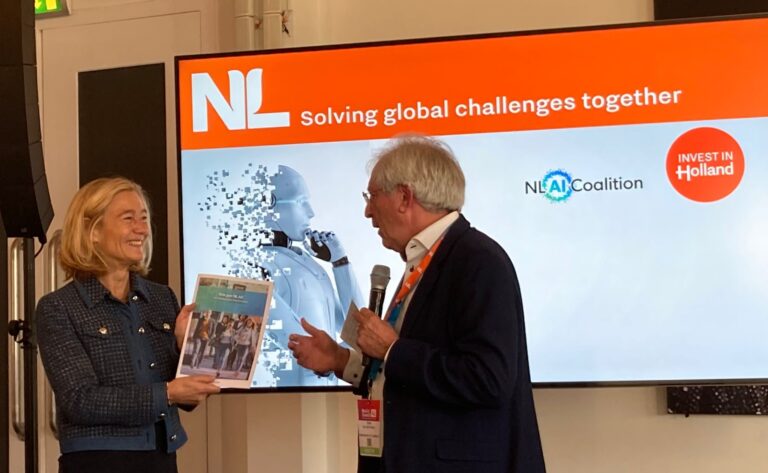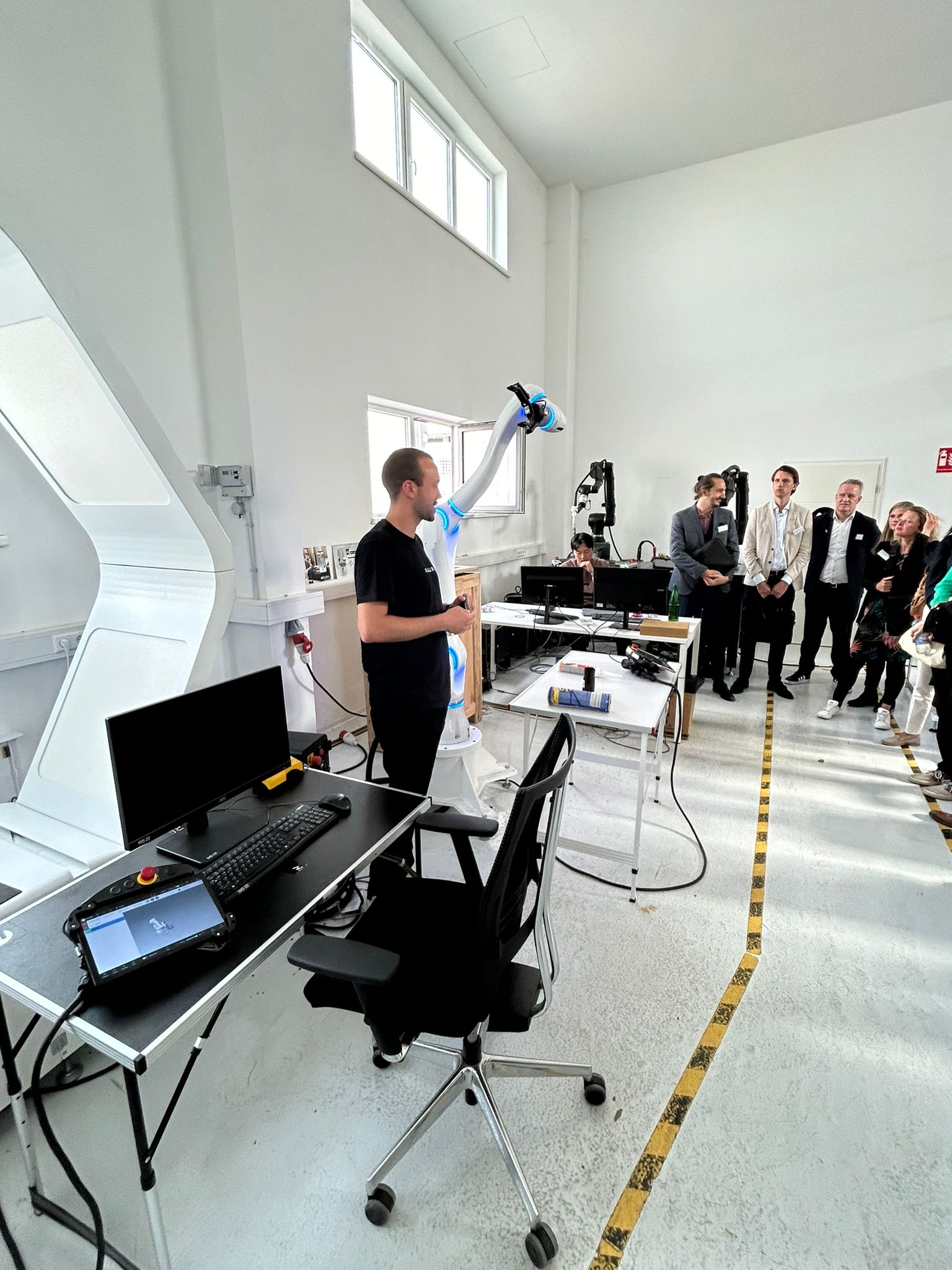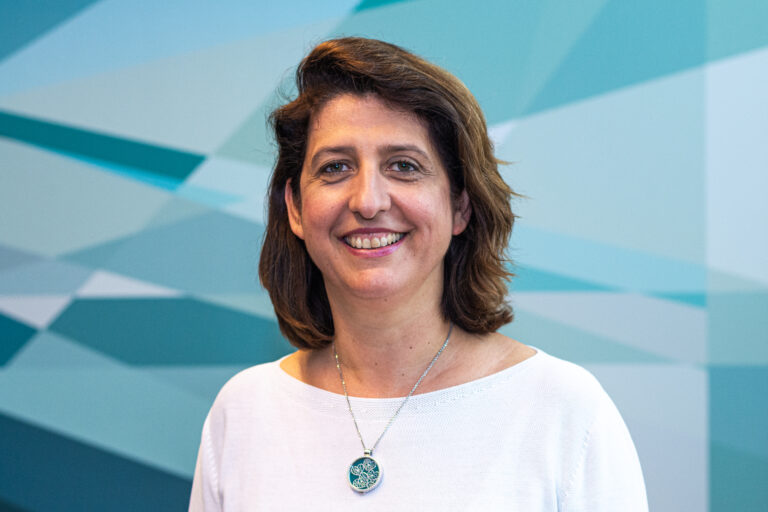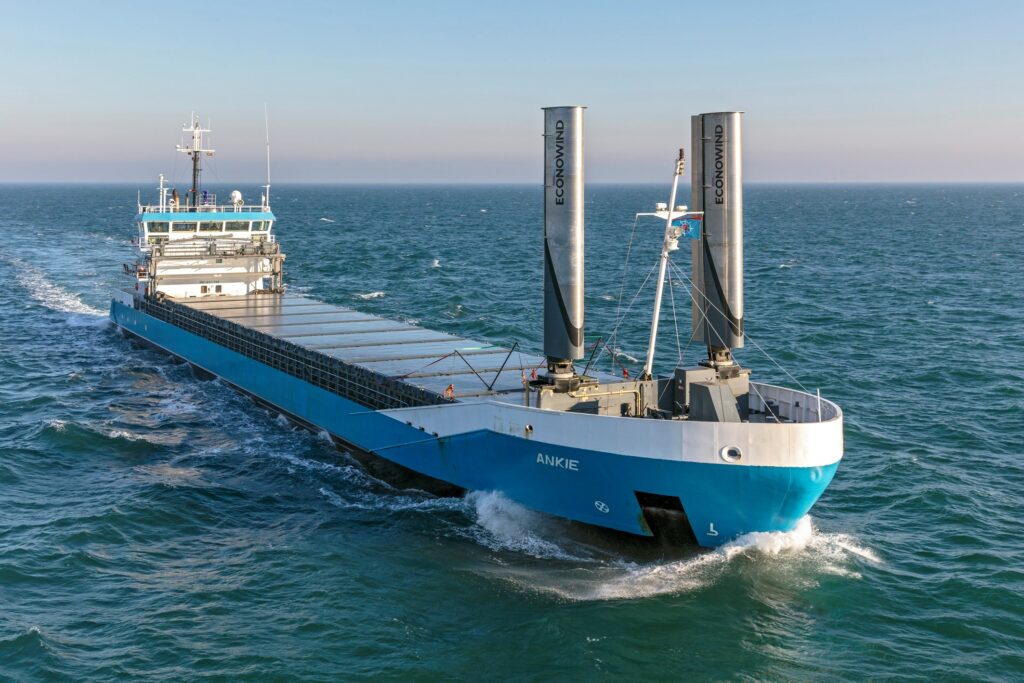On 8 October, the NL AIC celebrated its third anniversary – and with 475 participating organisations, 18 working groups and 7 regional AI hubs, it has become a public-private cooperation platform that nobody can ignore any longer. All the parties from the ‘quadruple helix’ of government, education and research, business, social organisations and the public are working together in it. This approach lets us avoid the fragmentation, pillarisation and poor efficiency of traditional working methods that do not fit well with AI’s rapid development. We are already seeing that AI applications are being employed more widely in society, for instance for improving medical diagnoses and treatments, reducing pesticide use, energy savings, individualised education, fighting crime more effectively, cheaper maintenance of roads and bridges and railways, more efficient production and transport of goods, and long-term customer relationships in the services sector and retail trade, as well as autonomous robots, cars and drones. The bottleneck areas we have described in the NL AIC are innovation, the knowledge base, the employment market, society and data sharing. The NL AIC’s mission is to put the Netherlands in a front-runner position in terms of AI knowledge and applications so that the country can benefit economically and socially, while still taking due note of social values. In 2022, the Netherlands is in third place on the global ranking on the Euler Hermes Digitalization Index (EDI), partly because investment in AI is being made by the National Growth Fund through the use of the NL AIC. This means that the country is on the right track, but we cannot relax just yet. A lot of important work remains to be done in AI applications in particular.
Yesterday, the Minister of Economic Affairs and Climate Policy was our guest in the NL Lounge at WSAI22. She was the first to receive the publication that was produced in honour of our third anniversary by Kees van der Klauw. The minister emphasised that if we are to seize the opportunities that AI has to offer for tackling the big problems society is facing today, we need to give our imagination free rein and invest a lot in knowledge, applications and skills. The NL AIC wholeheartedly agrees with this. In recent years, the NL AIC – mainly acting on its own – has developed into a meaningful collaboration, for participants and for policymakers. We sit down to talk with various ministries and are asked for advice. But there certainly are yet more issues that need attention. The allocation of a total of 204.5 million euros from the National Growth Fund to the AiNed programme developed by NL AIC gave an important impulse towards our goal and is a success for all of us. We will be tackling this over the next while – not just within and for the NL AIC, but for all of the Netherlands. If you would like to read more about what we have achieved in three years and what we will be working on, read the ‘From Advancement to Implementation’ publication.






